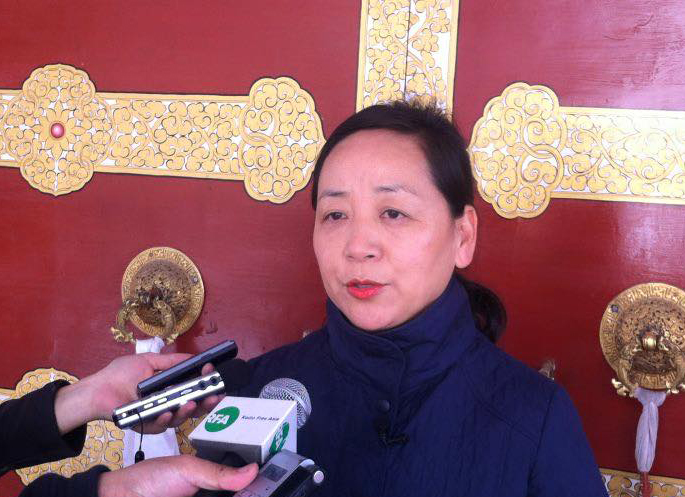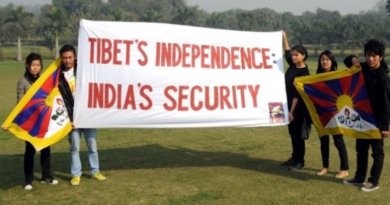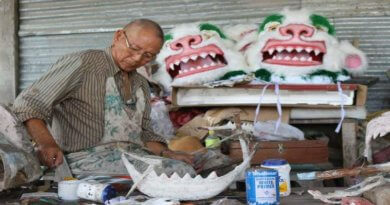Why I won’t vote in the Final Sikyong Election
By Choenyi Woser|February 29, 2016
(Translated from the original text in Tibetan)
In this year’s election for the post of Sikyong, we have had five candidates. Out of them, Lukar Jam stood for Tibetan independence. The rest of them—all Middle-Way advocates seeking Tibetan autonomy within the framework of Chinese constitution—went out of their ways to demonize Lukar Jam for ‘disrespecting’ His Holiness the Dalai Lama. Speaker Penpa Tsering even declared that he would not sit down with a “person who desecrates the name of His Holiness the Dalai Lama”, while Lobsang Sangay was so busy with his official engagements that we have been denied a public debate so far. Although Lukar Jam secured the third position in the preliminaries, the election commission prevented him from participating in the finals. Now that Lukar Jam is out, the ongoing election has not much significance as far as Tibetan struggle is concerned. The only issues that preoccupy the two remaining candidates are the Kalachakra teachings and putting up the portraits of Sikyong on the walls of a prominent Tibetan office.
Kalachakra is a religious matter. Hence, monasteries should be responsible for organizing it. All that the Central Tibetan Administration (CTA) could do is provide some help, such as maintaining security during the teachings. Kalachakra, thus, cannot become the most important issue of a political leader. In the past, Kalachakra teachings were organized by the Department of Religion and Culture, not by the Kashag.
The 2016 Kalachakra teachings was postponed. The primary reason for this, according to the Kashag, was that His Holiness was not feeling well. But controversy erupted when speaker Penpa Tsering, during one of his election rallies in the US, denied this by saying, “one of the Tibetan organizations in Dharamsala wanted to offer a long-life ceremony to His Holiness. The Tibetan leader, however, said that it could do this during the Kalachakra teachings. But the Kashag refused to incorporate it into their program. As a result, Kashag and the private office of His Holiness had a meeting. On 27 August, during an audience with His Holiness, the Tibetan spiritual leader, out of frustration, said that the Kalachakra is becoming political and should be postponed.”
I don’t understand why speaker Penpa Tsering brought up this issue. What’s his real motive? We have been proudly claiming that all political power has been devolved to the Kashag. But it seems Kashag who is organizing the Kalachakra doesn’t have the authority to postpone it! I don’t think the Kashag failed to consider that postponement of Kalachakra teachings would cause many difficulties to thousands of Tibetan devotees in and outside Tibet. We can afford to believe that the Kalachakra was cancelled because His Holiness needed medical check up.
As the incumbent Sikyong, Lobsang Sangay repeatedly claimed that he was not seeking Tibetan independence. It appears Sangay, as Sikyong, has allocated more welfare schemes and scholarships to Tibetans in exile compared to Samdhong Rinpoche, when the latter was Kalon Tripa. The huge amount of votes that Sangay received in the preliminaries, perhaps, testifies to this. But the great legal scholar from Harvard, as Sikyong, also organized far more official prayers than Samdhong Rinpoche did during his reign as the Kalon Tripa. In other words, Lobsang Sangay has not made any significant contribution to our freedom struggle. Perhaps he doesn’t have much power and capability to do so. After all Samdhong Rinpoche once warned Sangay, “You can make any changes as head of the Tibetan cabinet. But if you make any error, no matter how small it is, in your efforts to promote Middle-Way, I will come to your office with a stick.”
Chinese observers began writing articles on Tibetan democracy after a speech by His Holiness on 15 June 2013. The speech was on the issue of who truly represents the Tibetan struggle. Many politicians criticized Sangay for not following in the footsteps of His Holiness; moreover Chinese authorities assert that they would only negotiate with the private representatives of the Dalai Lama. All of these show that no one, except His Holiness, can make progress on seeking regional ethnic autonomy for Tibet.
As speaker, Penpa Tsering has had to weather many a storm in the parliament. He personally attacked Tibetan independence advocates. He made controversial claims such as people like Jamyang Norbu are responsible for shortening the life of His Holiness the Dalai Lama. As speaker, he failed to achieve anything significant for the Tibetan struggle. His solution to fixing up the Tibetan Youth Congress (TYC) crisis is not very progressive: he called for its division into two camps. He wasn’t sympathetic to Tibet Support Groups calling for Tibetan independence either.
In his campaign tours in North America, Europe and India, Penpa Tsering attacked Lobsang Sangay for failing to uphold his administrative duties. This forced Sangay to embark on a similar tour to defend himself. Despite all the negative campaigns by supporters of the two candidates, the general Tibetan public embraced them with much love and respect as Tibetan leaders. While criticizing each other can be considered a sign of progress in democracy, but holding onto the branches and forgetting the roots will not achieve anything substantive. However, if we seek regional ethnic autonomy for Tibet, we can’t expect better than this. Can we?
The ongoing electoral contest between Sangay and Tsering also reveal the curse of regionalism that still infects the Tibetan people. Both the Utsang and Amdo provinces went out of their ways to promote Penpa Tsering, while we hardly see any Amdo-wa openly rooting for Lobsang Sangay and a Khampa supporting Penpa Tsering. No matter who wins this election (Lobsang Sangay or Penpa Tsering), as far as I am concerned it will not make any positive impact on Tibetan freedom struggle. All they would do is find a few more scholarship schemes (I don’t deny their necessity), pretend how much devotion they have for His Holiness and declare to the world that they do not want Tibetan independence. This is the principle reason I have decided not to vote in the finals – not because Lobsang Sangay’s mortgage bills were allegedly “paid by the Chinese Communist Party” and Penpa Tsering “killed a man and drinks too much whisky.”
Choenyi Woser is a Tibetan journalist who writes in Tibetan language.
The views expressed in this article are that of the author and should not be attributed to Tibet Express.
Click here to read the original text in Tibetan language.



